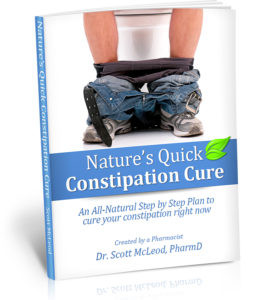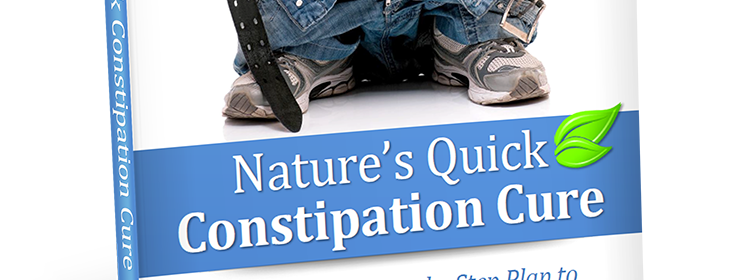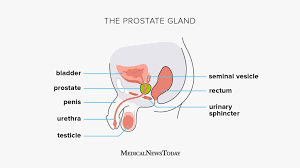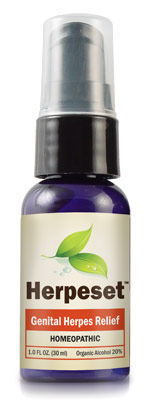 Much has been said about self-love and its importance in healing and integration. There are many ways to enhance self-love. Here are 5 simple tips that you can use to be kind to yourself and increase your levels of self-appreciation.
Much has been said about self-love and its importance in healing and integration. There are many ways to enhance self-love. Here are 5 simple tips that you can use to be kind to yourself and increase your levels of self-appreciation.
1. Write Down The Good Stuff

You have already accomplished so much in your life that you fail to take note of. Schools, weddings, buying a house, maybe even childbirth. You have also gone through funerals and injuries. But you do not give yourself credit for any of it, and there is no reason not to be proud of these experiences.
This is just the iceberg, and there is no way to write about all you have accomplished in writing. But you should try. Because it is only when you start to write down all that has happened to you and all that you appreciate that you come to understand how lucky you are.
Gratitude and appreciation are just a mindset. Unless you develop these faculties, you are still going to search for more and more and more. And despite getting more and more, you are never going to be satisfied. The world is full of people seeking more and more, and it never works.
What does work is being appreciative and grateful for what you have. Keep a gratitude journal close to your bedside.
Every morning and evening, write down just 3 things that you are happy about. It does not matter what is coming up or how the day went, you just have to write down 3 things in the gratitude journal.
This will create a positive shift throughout the day.
As you write down and look over all of the positive things that happened in your life, you will start to cultivate a mindset of appreciation. And as this happens, you start to appreciate life more, which will have a snowball effect.
Make a habit of writing down all that you enjoy. It is one of the easiest and most effective strategies to cultivate self-love. You have far more to be joyful for than you believe, but you need to take the first step and remove yourself from a negative mindset.
If writing does not suit, you could also just remember some happy memories or keep a scrapbook full of nice pictures. It just has to be a repository of positive items or traits that you appreciate about yourself.
2. Eliminate the Trash

The fact of the matter is that you deserve better than what you are achieving right now. And you should not be in any way reluctant to get rid of things that are not serving you. Things that you need to eliminate will likely include the news, social media, technology, bad foods, alcohol, cigarettes, negative thoughts, and sloth in general.
But it goes further than this. You have to get out of a relationship that you are not fully committed to. While the idea of finding fulfilment from a partner alone is incredibly misguided, you should at least feel happy with your partner and be compatible. If not, be kind to yourself and find a different significant other.
Work is one place where you need to really make sure you are the right fit. If you are really unhappy in the role, then leaving might be the better option. Alternatively, you might want to save some cash and wait for an opportunity to make the switch. A toxic work
Environment can be very damaging to your self-esteem. There are many options available and if you really want the life of your dreams, you can have it.
The truth is that the best way to care of yourself involves eliminating many of the things that make you feel bad. Ensure that you are putting yourself first by removing the excess. This is a far more simple step than most people make it out to be. When you have finally quit your toxic job or relationship, the relief will be palpable. There are few, if any, who have said that quitting their job to go travel the world was a bad decision.
You will also have to eliminate limiting beliefs. These beliefs often stop you from really caring about yourself. You might believe that you are not a confident person or that you are always depressed or introverted. But these beliefs often come from a single past experience that you thought about a lot and repeated to yourself. When you adopt positive beliefs your enjoyment will truly start to unfold and you can unashamedly pamper yourself without any guilt or reluctance.
Take a Break: Be Happy Now

Every individual needs rest and relaxation. What this entails is unique to everyone. It could be sitting beside a fire and reading a book, going to the spa for a massage, or taking a walk in nature. Regardless, identify what you like to do and fit them into your daily life as much as possible. Because you deserve to do them frequently.
When you put off things for a long time period, it can create a sense of restlessness in the mind. Most people put off living their life until they reach vacation time. But joy and happiness need to be present in work, play, and vacation time. They are not something to be put off for one single second. You should smile going into work and smile coming out. While this might round ridiculous, there is no reason it cannot be this way except for your conditioning.
Despite the seriousness of any event, you can reframe it in your mind for the better. And you can change any circumstance in such a way that you are happy for it occurring. Consider that many people are happy just to have food or their health. Make a habit of being happy at all times instead of waiting for it to arrive.
Alternatively, If you do schedule regular relaxation time for whatever it is that you like to do on a daily basis, then you can be happy for that during the day. There is always something to appreciate. If worse comes to worst, you can just open your gratitude journal to see how good life really is.
Prepare For a Better Future

Every person needs a goal or something to look forward to. While this most often takes the form of financial gain, it would be best to focus on developing emotionally, mentally, spiritually, and physically. Set out a plan for self-development that is comprehensive and all-encompassing. In this way, you will have a framework to work with and a real means of developing.
Obviously, you can’t become too dogmatic in terms of what you achieve with this. But you need to commit to improving each and every day to be ultimately fulfilled. There are many brilliant online courses that are designed specifically to increase self-love and overall well-being. Some consist of a number of practical month-long experiments that are designed to push you to the limits of your consciousness.
At least, you should have one or two philosophies or speakers on YouTube that you are paying attention to. You are not short on information or challenges to make a better version of yourself. But it does take consistency and dedication.
Your speaker or philosophy should obviously be something that you resonate with deeply. It is better if you have a network of people who you are friends with that follow the same ideology. If you do put in the work you are going to get better. There is no reason to get overly dogmatic about whether the philosophy is correct or not. Different speakers have different teachings which are all useful. In other words, they work for certain people at certain times. Some benefit from Stoic works, others from positive psychology, more still from metaphysical practices such as Yoga, chanting, or singing bowls. The whole point is that you enjoy it and feel that you are developing as a person.
It’s 2023. You can go practically anywhere you want in the world, learn any language, taste any food, start up any business, pick any hobby you want. The options are endless. But most people are unsure of themselves. They want validation from other people that what they are doing is correct. So they often fail to evolve and live an incredibly fulfilling life.
There is absolutely no obligation to work 9-5 in a city if you don’t want to. The internet contains every piece of information you could possibly need to thrive in the fullest sense of the word.
Watch Your Self-Talk

Everybody has a huge amount of negative chit chat going on inside of their heads. They have had past negative experiences and then fear that this will happen again. They might not feel confident, might have social anxiety, financial worries, health issues and more. But the worries that have around these issues far dwarf the events themselves. In the words of Carl Jung: “We have found the enemy, and he is us”. The truth is that we are our own worst enemy.
We criticize ourselves endlessly and are highly aware of what other people think of us. But when we focus on what others think of us, we do not receive the fullness that life has to offer, because we miss the details while our focus on our identities.
Be kind with your self-talk. You are doing very well, regardless of where you are at in life. Everybody has unique struggles to go through and you are doing your best either to pull yourself out of a hole or to attain higher states of awareness. Either way, focus on the positive and make some affirmations to help you on the way. You can be your best friend or your worst enemy.
Lots of people have made a lifelong habit of complaining about where they are at and being unhappy with their circumstances. They constantly think about what they are doing wrong. A good exercise could be to analyze how long other people would be your friends if they talked to you the way you did. Things like:
“I am thirty and will never get a boyfriend”
“I am overweight”
“Some people are just not good with money”
Should be replaced with:
“I am young and have my life ahead of me”
“I am going to be thin very soon”
“Money is just a product of mind that I will master”
Your self-talk has the biggest impact on your overall well-being. Make sure to let yourself know that it is ok to cry, that you are worthy of love, that life is enjoyable, that you have nothing to fear, and that you can manifest anything that you want. Ultimately, this is empowering. You are the one who gets to decide how you feel.
Bonus Point

Taking care of yourself is actually uplifting, revitalizing, compassionate, and completely natural. It is the way that things are meant to be. Making alterations to your lifestyle such as meditation, gratitude, exercise and diet might start out as chores. But as you move forward they serve to become an enhanced way of life where you learn to really take care of yourself in a meaningful way.
Nothing could be more difficult than what most people actually do, working up a corporate ladder and berating themselves for going too slowly.
Life is inherently easy as long as you stop tricking yourself into believing you should be doing better. Be kind to yourself, do what you can and remember to relax. No one has the power to judge your life except you, and you are the only one who can make it better by appreciating yourself more.










